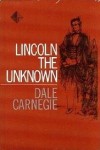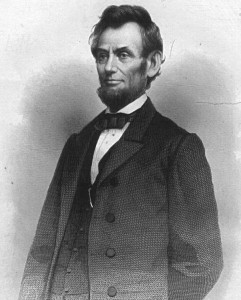Rating: 




Lincoln the Unknown, by Dale Carnegie
What do you really know about Abraham Lincoln? Before reading this book, first published way back in 1932, my knowledge could have been summed up like this: He was the president of the American Civil War. He was the president who made a famous speech after Gettysburg and emancipated the slaves. He was hated enough by some, that he was assassinated. Today he is revered as a protector of American democracy, and has a famous memorial in Washington D.C. Carnegie wrote this book after realizing he too, only knew the bare facts. There is so much more..
was the president who made a famous speech after Gettysburg and emancipated the slaves. He was hated enough by some, that he was assassinated. Today he is revered as a protector of American democracy, and has a famous memorial in Washington D.C. Carnegie wrote this book after realizing he too, only knew the bare facts. There is so much more..
The book is about the inner life and struggles of Abraham Lincoln, how he led a life of poverty, but from pauper became president. How he emerged from obscurity and became the  Republican nominee at the 1860 Chicago convention. How he loved to tell humorous stories and was an avid reader of Shakespeare.
Republican nominee at the 1860 Chicago convention. How he loved to tell humorous stories and was an avid reader of Shakespeare.
How many times do we see the outer person and not the struggles that created them?
As a short biography, we are given a wonderful lesson in character, integrity, and humanity. The book does not concentrate on the history of the time, but rather the relationships Lincoln created with the people he knew. Of particular interest was the lost love he mourned for his whole life, Ann Rutledge, his rocky marriage to Mary Todd, and the constant battles and rivalries with fellow politicians and military men.
Written in a pretty unique style, sounding a little old fashioned now (after all, a lot has changed since 1932), nonetheless, when we consider the huge impact of “How to Win Friends and Influence People” Dale Carnegie deserves our respect, and much can be learnt from his admiration for Lincoln. Despite what you might have already known about Lincoln, would you have known he was one of the most despised men of his day, by his many opponents, and the newspapers, would you have known he had a life-time struggle with depression, but learnt to live with it?
There is a passage from ”Macbeth” that made a profound impression on Lincoln. I don’t know if these words have ever been applied to Lincoln himself, but to Carnegie (p196) they seemed appropriate:
Duncan is in his grave;
After life’s fitful fever he sleeps well;
Treason has done his worst: nor steel, nor poison,
Malice domestic, foreign levy, Nothing,
can touch him further.